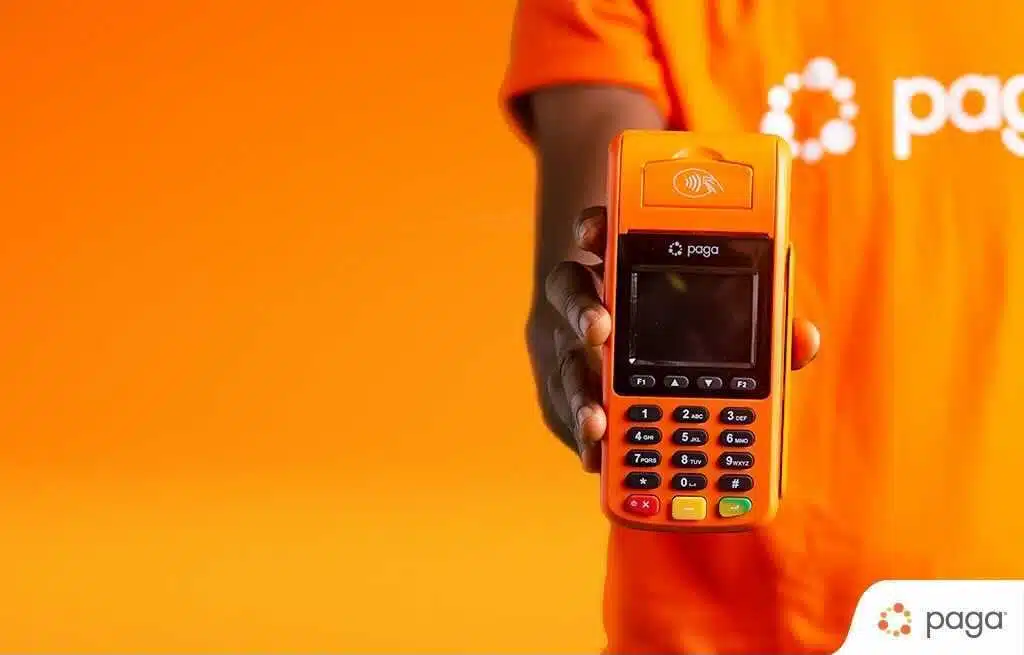Hérete,
Victoria from Techpoint here,
Here’s what I’ve got for you today:
- No more tax for small businesses earning below ₦50M
- Lesaka acquires Bank Zero for $61.82 million
- Maroc Telecom raises $330M in first-ever private bond
No more tax for small businesses earning below ₦50M

The tax reform bills in Nigeria? Yeah, I had to dig into that. But let me confess. Reading long, dense documents? Not my thing (shout out to the brain wiring). I’m that writer who struggles to understand what I read. Wild, right? I’d rather watch a video or scroll through a podcast any day. But that’s a story for another time. For now, just know that autism can affect communication in many ways, and difficulty processing written text is one of them.
So when President Bola Tinubu, Nigeria’s President, signed those tax bills into law, I didn’t even stress. I just “set up” Emmanuel on WhatsApp (his words 😂), and by the next day, a solid breakdown was live on Finance in Africa. Here’s the gist for you, whether you’re an employee, business owner, or just trying to make sense of your receipts.
First up, small businesses finally caught a break. If your business earns less than $32k (₦50 million) a year, you won’t be paying corporate tax anymore. That’s double the old threshold. And no more withholding tax drama for transactions under $1.3k (₦2 million), as long as your TIN is intact. Oh, and physical cash tax collection? Gone. So yeah, fewer hassles, less stress for small biz owners.
If you’re running something bigger, don’t worry, the reforms didn’t leave you out. Corporate income tax is going down, from 30% to 25% by 2026 (with a pitstop at 27.5% next year). And instead of juggling three separate levies, there’s now just one Development Levy. It starts at 4% and will shrink to 2% by 2030. Bottom line: fewer admin headaches, more focus on growing your business.
For salary earners like most of us, there’s some relief too. A new personal inc0me tax system now kicks in from 2026. If you earn below $520 a year, you pay nothing. From there, it goes up gradually, topping out at 25% for folks making over $32k. Most Nigerians, especially those earning less than ₦100k monthly, will end up paying less or nothing. For once, taxes are feeling a bit fair.
Now, VAT isn’t increasing (thank goodness), but they’ve zero-rated basics like food, rent, school fees, healthcare, public transport, even exports. That means businesses can now claim input VAT and maybe pass those savings down. Also, states now get more from VAT collections (55%), while the federal share drops to 10%. Translation: expect more activity from your state tax guys, not Abuja.

Victoria Fakiya – Senior Writer
Techpoint Digest
Stop struggling to find your tech career path
Discover in-demand tech skills and build a standout portfolio in this FREE 5-day email course
Behind all of this, Nigeria’s tax machinery is getting a reboot. FIRS is out, Nigeria Revenue Service (NRS) is in. Six different tax laws are now merged into one big framework. Plus, there’s a new Joint Revenue Board and a Tax Ombudsman (hello, tax complaints hotline). The goal? Make tax collection cleaner, simpler, and maybe even fair. Time will tell if it works, but for now, it’s a bold move. Want to dig deeper? Go read the full piece on Finance in Africa. Amarachi broke it all down nicely.
Lesaka acquires Bank for $61.82 million

Did you hear? Lesaka Technologies, a South African payment processing company, is scooping up Bank Zero, a digital bank chaired by former FNB boss Michael Jordaan, for a cool R1.1 billion ($61.82 million). Jordaan spilt the news on social media late Thursday, and insiders say the move is stirring major fintech vibes in South Africa.
This move comes eight months after the JSE-listed fintech wrapped up its R1.67 billion ($96 million) takeover of payments company Adumo.
The new deal is set to be a mix of brand-new Lesaka shares, meaning Bank Zero investors will end up owning about 12% of the combined group and up to R91 million ($5.11 million) in cold, hard cash. It’s expected to close later in 2025, once the usual regulatory green lights roll in. Think Prudential Authority, Competition Commission, and Exchange Control.
With this acquisition, Lesaka adds a full banking licence and tech-first infrastructure to its fintech stack. Bank Zero brings R400 million+ ($22.37M+) in deposits and over 40,000 funded accounts, plus that snazzy patented debit card that swaps numbers per transaction to outsmart fraudsters.
Management-wise, nothing’s changing. Jordaan stays on as chairman, joins the Lesaka board, and CEO Yatin Narsai will continue steering Bank Zero post-merger. That continuity was even picked out by Business Report’s Edward West as a key confidence booster.
Investors reacted briskly. Lesaka stock shot up 17% intraday before settling back, showing both excitement and caution in equal measure. Analysts say the move will help Lesaka trim over R1 billion ($56.2 million) in gross debt and fund lending via deposits, meaning better margins and less debt reliance.
By combining Bank Zero’s zero‑fee banking model with Lesaka’s fintech and distribution platforms, the merged entity promises faster growth, seamless service, and a healthier balance sheet. If regulators sign off, Bank Zero is expected to be profitable within a year of the transaction closing.
Maroc Telecom raises $330M in first-ever private bond

Last week, Morocco’s biggest telecom operator, Maroc Telecom, announced a solid 3 billion dirhams (about $330 million) investment in its first-ever private bond issue on the local market. The bond comes with a two-year maturity, bullet repayment, and a tidy fixed interest rate of 2.37%. The company says the fresh funds will be used to pay down some of its existing debt and ramp up investments in 5G and fibre optics, two areas it’s banking on for long-term growth.
This cash injection comes at a crucial time. Maroc Telecom is under pressure at home, reporting a 5.9% dip in pr0fit in Q1 2025. Earnings dropped to around $154 million (1.43 billion dirhams), with revenue slipping 2% year-on-year, mostly due to sluggish performance in Morocco. But it’s not all bad news. The company’s African subsidiaries under the “Moov Africa” brand are picking up the slack, with revenues in those markets up 4.1%.
And that’s where it’s doubling down. With nearly 80 million subscribers as of March 2025, thanks to a 6.5% bump in its Moov Africa markets, the telecom giant is betting big on growth outside its home base. Countries like Côte d’Ivoire, Burkina Faso, and Togo have become important revenue drivers, and there’s more in the pipeline.
Two weeks ago, Maroc Telecom secured $425 million in loans from the International Finance Corporation (IFC) to boost mobile and Internet connectivity in Mali and Chad, markets with some of the lowest Internet penetration on the continent. For context, only 13.2% of people in Chad and 35.1% in Mali are online, so the upside for mobile Internet services, especially offerings like mobile money, is huge.
The company’s vision for 2025 is clear: strengthen its digital backbone, invest in infrastructure, and push high-speed broadband in both urban and rural areas. It’s also working hand-in-hand with global partners like the IFC and UAE-based Etisalat (its majority shareholder) to position itself at the centre of Morocco’s and the region’s digital transformation.
As it juggles expansion and competition, Maroc Telecom is staying focused on its mission: improving digital access across the continent. If it plays its cards right, this bond issue could be more than just a financial move; it could be the push that keeps it ahead in the ever-evolving African telecom race.
In case you missed it
- Africa’s cybercrime crisis deepens as scam cases spike 3,000% across key countries
What I’m watching and reading
- 1 Conservative vs 20 Feminists (Ft. Candace Owens)
- The Pain of Almost Relationships — My Story
Opportunities
- Lagos Business School is hiring. Apply here.
- Kuda is looking to fill 37 positions. Apply here.
- MasterCard is recruiting a Head of Impact Labs. Apply here.
- Jumia is hiring a Chief Marketing Officer (Pipeline). Apply here.
- Sun King is looking for a Workforce Planning Analyst, Nigeria. Apply here.
- Building a startup can feel isolating, but with Equity Merchants CommunityConnect, you can network with fellow founders, experts, and investors, gaining valuable insights and exclusive resources to help you grow your business. Click here to join.
- Help us make Techpoint better for you! Your feedback shapes what comes next (your responses may potentially save my job. A bit dramatic, but still). It will only take 30 seconds to tell us what works and what doesn’t. Fill it here.
- To pitch your startup or product to a live audience, check out this link.
- Have any fresh products you’d like us to start selling? Check out this link here.
- Follow Techpoint Africa’s WhatsApp channel to stay on top of the latest trends and news in the African tech space here.
Have a productive week!
Victoria Fakiya for Techpoint Africa.











